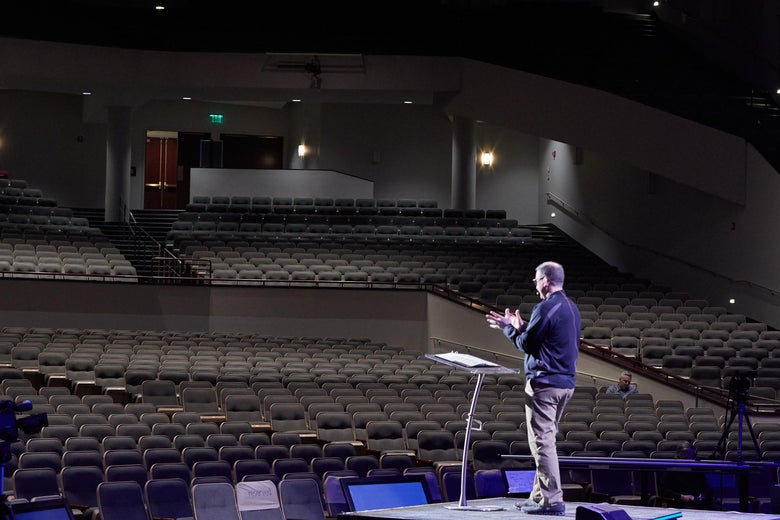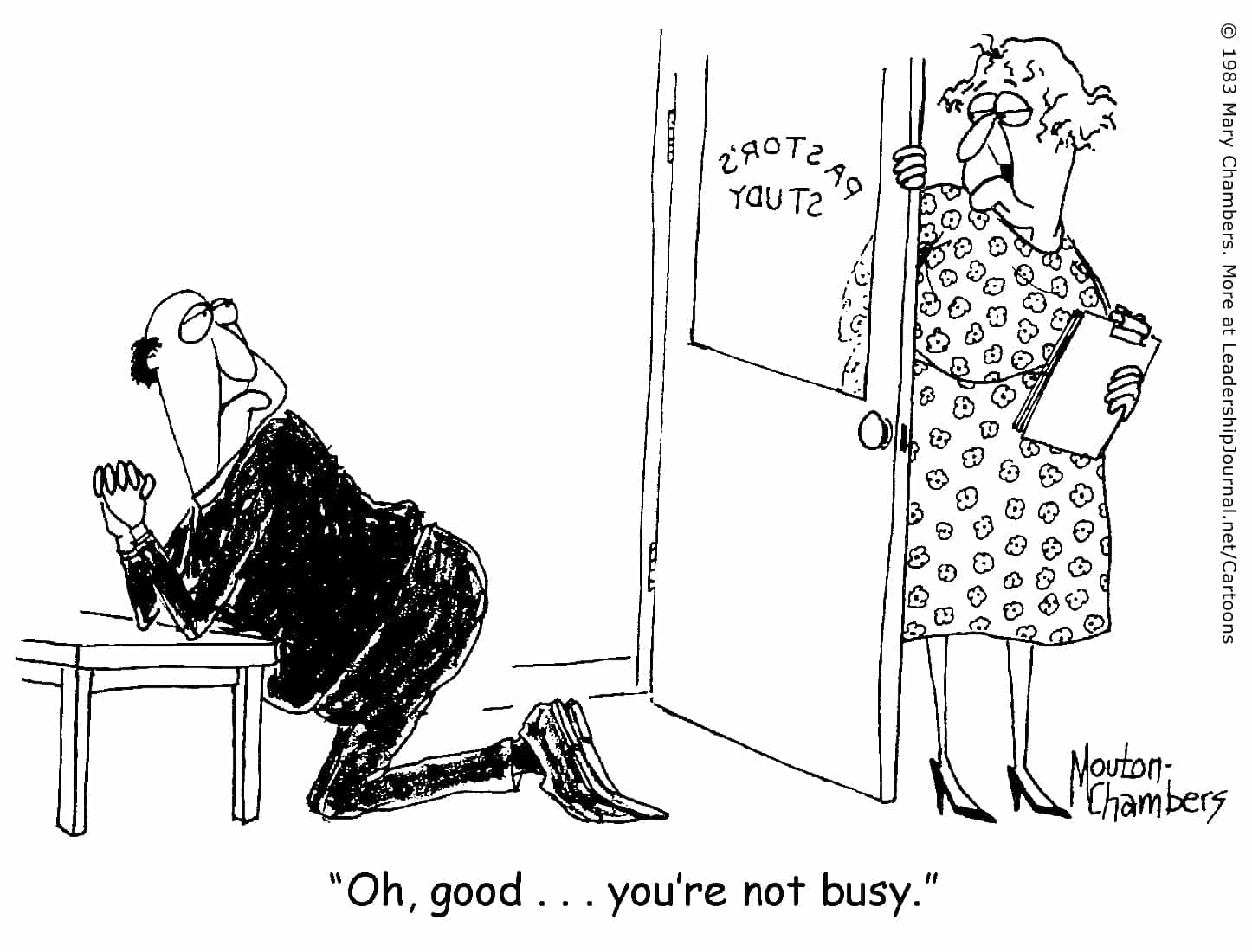I spoke with a young woman recently about a tough situation in her home church. To describe her situation, she utilized the language of ‘spiritual abuse,’ and something about those words made me hesitate. It’s not language I typically use, or appeal to, and the more I reflected on our conversation, a series of questions began to work their way through my mind: What is spiritual abuse? Have I ever experienced it? Why do I feel like it is language that needs special nuance?
The last question is probably the best place to start. I think the language of ‘spiritual abuse,’ like the language of ‘spiritual warfare,’ may be misused in the church. What I mean is that when I encounter a difficult situation, I hesitate to explain those situations by an appeal to spiritual abuse in the same way I hesitate to account for difficult situations in the church by appeal to spiritual warfare. Don’t get me wrong—I believe that spiritual warfare is real, but I think we should look to natural sources of a problem before we appeal to explicitly supernatural sources. In other words, I feel like we should arrive at warfare as an explanation for difficult people and situations by means of a process of elimination. If something goes wrong, it might be spiritual warfare, but it also might be bad planning, or bad timing, or human error. To put it even more bluntly, sometimes the devil made me do it, but it’s far more likely that you were an idiot. Jumping too quickly to the overtly ‘spiritual’ explanation short-circuits the process by which we need to carefully examine our own motives and culpability in a given set of circumstances.
I also hesitate to use the term ‘spiritual abuse’ because the language of abuse is freighted with quite strong cultural implications. To be labelled an ‘abuser’ is one of the worst things you can be called in today’s world. It implies intentionality and malice, suggesting that the person accused of spiritual abuse has willfully and consciously abused the people under his or her care. While this is sometimes the case (and I will return to these cases at the end), I don’t think most people who perform actions of spiritual abuse in the Church do so willfully, or maliciously, or even intentionally. I think most spiritual abuse can be accounted for by appeal to incompetence. To put this even more specifically, I believe that most spiritual abuse in the church is born from a lack of self-knowledge. This is a claim that may require some explanation.
What is spiritual abuse, and why do I think it comes from a lack of self-knowledge? I think spiritual abuse is, quite simply, the misuse of spiritual authority. Let’s begin by taking a closer look at the concept of authority, because authority is an intrinsic part of our relationships. Some people have been authorized to teach, guide, discipline, correct, model, and love others. The right use of their authority results in the proper teaching, guidance, discipline, correction, modeling, and love of others, while the mis-use of their authority results in vacuous, inept, or abusive relationships between those parties. In every relationship of authority there is an ever-present danger, because every entrusted matter can be misused, resulting in abuse. The authority invested in parents may be the clearest example of this—a parent has been authorized (by virtue of his or her parental role) to do all of the above tasks for their children. They are good parents when they utilize their authority appropriately, and mediocre or bad parents when they fail to use their authority properly (whether it be through neglect or excessive control).

What, then, is ‘spiritual’ authority? Spiritual authority is the natural authority of relationships as it manifests in a religious context. Speaking as a Christian, we have a religious text (the Bible), a body of dogma (theology), and a historic body of people who steward that book and dogma (the Church). Together these three factors comprise the primary sources of spiritual authority. Within the Church, specific members are authorized to utilize that authority in specific contexts. For example, parents are authorized to raise up their children in the Lord; pastors and elders are authorized to teach, rebuke, and disciple; and every member of the Church is authorized to call one another to greater faithfulness. But in each of these contexts we encounter the ever-present danger of authority—that is, every matter of spiritual authority can be abused. Additional dangers emerge when we contrast earthly authority and spiritual authority. If I am a prison warden, authorized to keep order and peace in a cell block, I may use physical force to enforce my will; as a pastor, I may not beat people into spiritual submission. If I am a parent, authorized to train up and discipline my children, I may hide their toys, or ground them, or take away their allowances; as a pastor, I may not rob or manipulate my people into spiritual submission. If I am a property owner, I may demand that people stay off my lawn, or park away from my drive, or sue them for property damage; but as a pastor, I may not demand or coerce people into doing anything spiritually. Whatever the context and privileges of an earthly authority, when it comes to spiritual matters we who are tasked to act in spiritual authority will find that our hands are uniquely tied. As a pastor I may not bribe, bully, or beat my people into submission; all that I can do is exhort them, and, moreover, when I exhort them, I may not manipulate them through guilt, fear, or shame. Spiritual authority always goes wrong when we make use of worldly tools of authority in its service.
Why, then, do I think that spiritual abuse tied to a lack of self-knowledge? This explanation may appear complex but hang with me for a moment. At the heart of the matter, a spiritual abuser has confused what I want with what God wants. In other words, the spiritual abuser lacks the self-awareness required to distinguish between his or her personal desires and the mandates of ministry. This is why I can, if I am an abuser, appeal so easily to spiritual rhetoric in the service of earthly agenda; in order to get what I want, I slave the Kingdom of God to my personal desires. Spirituality then serves as a tool for manipulation. Examples abound: If you really loved God, you’d obey me. If you really had faith, you’d tithe more. If you were really humble, you’d agree with me. If you knew Jesus, you wouldn’t act like that. In each case spiritual rhetoric is employed to drive someone to do what I want; it is a rhetoric that shows up in building projects and vision statements, in marriage seminars, revivals, conference programs, and elder board minutes. It’s pervasive.
Behind this confusion (between what I want and what God wants) lies a deeper unacknowledged issue—namely, that the situation faced by people with spiritual authority produces anxiety. In short, spiritual authority comes with a deep mandate to powerlessness. It is God and God alone who changes people, not preachers, parents, or Sunday School teachers. But as ministers who are charged with communicating the good news of Jesus Christ, it is all too easy to take on the life-changing aspect of that message as our task. When we do that—forgetting that it is not our job—we revert to worldly methods of power; we manipulate through our words, we bully our people through our actions, we attempt to bribe them. It is in this way that spiritual abuse is born form this gap our self-knowledge, because no minister consciously wants to manipulate or abuse his people into action. But to men and women who haven’t come to terms with this powerlessness—who haven’t permitted that look in the mirror where they begin to come to terms with their own weakness and ineptitude—then such people must rely on their own power. Oblivious to the innate powerlessness of the call to ministry, we utilize the tools of earthly authority in our spiritual mission. Feeling powerless, such a person appeals to methods that ‘work’, even if they are wrong. The result is inevitably a form of abuse.
There are perhaps four more things I want to say about spiritual abusers—each rooted in this lack of self-knowledge. In the first place, I think it is very important to acknowledge the fact that abuse begets abuse. Men and women who abuse spirituality most often learned their habits from other ministers, who themselves didn’t know they were being spiritually abusive. We should not be surprised that ministers who lack self-knowledge struggle to lead others into greater self-knowledge. In some respects this means that spiritual abuse is nothing more than a bad habit—albeit a very bad one. Nevertheless, this situation raises some alarming reflections: if a given pastor models spiritual abuse from the pulpit, in his personal life, and in relationships, then the congregation will begin to learn those lessons tacitly. The pastor who abuses his congregation spiritually will give permission to associate pastors, elders, deacons, lay leaders, and parents to utilize those techniques in the authority they exercise over their wards. (To my mind, this raises again the seriousness of a passage like James 3:1, “Not many of you should presume to be teachers, for we will be judged more harshly.”)

Second, I think it is terribly important to recognize that a spiritual abuser doesn’t know that he or she is abusive. This is, in a way, unsurprising—if spiritual abuse is a product of ignorance, how can you possibly know you’re doing it? This fundamental gap in self-knowledge makes it all the more difficult to grow out of the habits of abuse. But there are a few additional reasons that make this situation even more troublesome. In the first place, to the abuser’s thinking, spiritual abuse works. More often than not, bullying and manipulation can succeed at getting people to change—at least on the surface. (After all, the abuser is someone who has in all likelihood himself or herself been abused spiritually—“It worked for me, didn’t it?”). To this situation is added a troubling logic—if I do something in ministry and it works, that means my ministry is blessed by God. If God has blessed what I am doing, how could it be wrong? In this way, my earthly metric of success reinforces my bad habits. It becomes far more difficult to self-examine when everything appears, on the surface, to be successful and ‘blessed.’ But in the second place, and more importantly, to admit that I am a spiritual abuser will mean admitting my powerlessness. This is a deeply alarming prospect, because it invites a confrontation with anxiety, with sin, with my own history, my wounds, and those places where I am appealing to spiritual matters to control my own anxiety. Growth in self-knowledge is painful, and willful ignorance is a wonderful way to keep that pain at bay.
Third, because the spiritual abuser does not know the boundaries of her self, her sense of spiritual authority has been collapsed into her sense of self. Because I don’t know where I end and God’s authority begins, this is why I can so easily confuse my agenda with God’s agenda—this is the root of the thinking that “my way is Yahweh.” But the more, in ignorance, I am committed to this collapse, the more I can be convinced that I am doing the right thing. Once again, where an idea of success is linked to a concept of blessing, then success in abusive methods will be interpreted as a blessing upon those methods. Because it works, I am right, and God loves me and agrees with me. This situation also produces a wonderful sense of confidence—even an imperviousness to criticism. God is for me, who can be against me? All of this leads to a further side-effect. For many spiritual abusers, they have so deeply identified with their authority that they perceive opposition to that authority as direct opposition to the self. To disagree with or oppose a person in spiritual authority who thinks this way is to violate their sense of self. Oppose the abuser, and they will respond in the strongest possible terms.
This, in fact, is the fourth observation, because if you stand up to a spiritual abuser, you will be accused on spiritual terms. In fact, the most alarming thing to a spiritual abuser—who at core doesn’t know who she is—is the presence of a person who does know who she is. To the person who has become accustomed to bullying as a way to get what they want, it is deeply alarming to encounter a person who cannot be bullied. In response, they will pull out all the stops, “You’re so prideful!” “You’re not even very spiritual!” “I suspect that she is under the influence of demonic powers!” Sadly, many good people in the Church have been slandered by others, simply because they wouldn’t cave to the unacknowledged anxieties of their spiritual leaders.
I believe that spiritual abuse is a uniquely difficult problem in the church today (perhaps it is the case in all religious contexts, but I can only speak with authority about the Christian one). The unique difficulty is that to break the cycles of abuse we must grow in self-knowledge. But, as I’ve suggested, spiritual abusers are often by disposition immune to such growth in self-knowledge! I can offer only a few provisional suggestions. First, we’ve got to advocate for good theology of ministry—that is, a theology of ministry that properly emphasizes the power of God and the role of our own powerlessness. Second, we’ve got to encourage growth in the baseline of self-knowledge throughout the Church. Since spiritual abuse is a problem in the exercise of authority, I suspect that change in this area will need to begin with ministers, then work its way down into the pews. Third, and most difficultly, spiritual abusers must be answered by men and women who know who they are and cannot be bullied. This is a painful recommendation to make—it means encouraging faithful men and women to be accused of the worst kind of spiritual offenses, to be ostracized, shamed, and manipulated, but, being confident of who they are and who God is, standing firm.
Addendum: I said at the beginning that there are, indeed, situations of malicious spiritual abuse. These are people who manipulate others through spiritual means, and consciously know that they are manipulating others through spiritual means. Such people are psychopaths, and while there are occasionally psychopathic ministers in the Church, I believe such situations are rare (although newsworthy, when they are outed).









 In the midst of our present global scenario—of social distancing, lockdowns, and quarantines, of distance learning, work from home, and digital churches—a phrase from Bonhoeffer’s Life Together keeps coming to mind: “Whoever cannot be alone should beware of community. Whoever cannot stand being in community should beware of being alone.”
In the midst of our present global scenario—of social distancing, lockdowns, and quarantines, of distance learning, work from home, and digital churches—a phrase from Bonhoeffer’s Life Together keeps coming to mind: “Whoever cannot be alone should beware of community. Whoever cannot stand being in community should beware of being alone.”
 In case you’re not familiar with the terms, ‘extraverted’ and ‘introverted’ are personality types devised by Carl Jung, based on his broad observations of a multitude of clients. Some of them, he came to see, were recharged by being with people, while others, he perceived, were recharged by being alone. I’ve put ‘recharged’ in italics both times because it’s the key phrase here—extraversion and introversion are measurements of energy, not social skill, as is commonly thought (there are socially incompetent extraverts and socially expert introverts).
In case you’re not familiar with the terms, ‘extraverted’ and ‘introverted’ are personality types devised by Carl Jung, based on his broad observations of a multitude of clients. Some of them, he came to see, were recharged by being with people, while others, he perceived, were recharged by being alone. I’ve put ‘recharged’ in italics both times because it’s the key phrase here—extraversion and introversion are measurements of energy, not social skill, as is commonly thought (there are socially incompetent extraverts and socially expert introverts).



 But we can compound the problem further with a second reason. Let’s imagine you’re a pastor who is extraverted, who gets a charge from being with your people. Suddenly, not only has the visible portion of your work been taken away from you, but you are also prohibited from connecting with the people who give you life. If you’ve only focused on extraverted spirituality, to the neglect of introverted spirituality, then there’s a good chance you’ve been skipping leg day in your spiritual workouts. And Covid-19 has commanded you to lift a piano with your legs.
But we can compound the problem further with a second reason. Let’s imagine you’re a pastor who is extraverted, who gets a charge from being with your people. Suddenly, not only has the visible portion of your work been taken away from you, but you are also prohibited from connecting with the people who give you life. If you’ve only focused on extraverted spirituality, to the neglect of introverted spirituality, then there’s a good chance you’ve been skipping leg day in your spiritual workouts. And Covid-19 has commanded you to lift a piano with your legs. More important than getting the tech right—which is a nightmare in itself!—is coming up with some killer eleventh-hour sermon applications from the coronavirus situation. After all, what preacher is worth his or her salt who cannot monopolize on a situation like this, to speak rich and profound spiritual meaning into a global situation by means of thin theology and vague reference points? That’s why I’m here to help. I’ve come up with the following
More important than getting the tech right—which is a nightmare in itself!—is coming up with some killer eleventh-hour sermon applications from the coronavirus situation. After all, what preacher is worth his or her salt who cannot monopolize on a situation like this, to speak rich and profound spiritual meaning into a global situation by means of thin theology and vague reference points? That’s why I’m here to help. I’ve come up with the following 



 Roger Scruton, who died this past week, was reading de Gaulle’s Memoires
Roger Scruton, who died this past week, was reading de Gaulle’s Memoires 